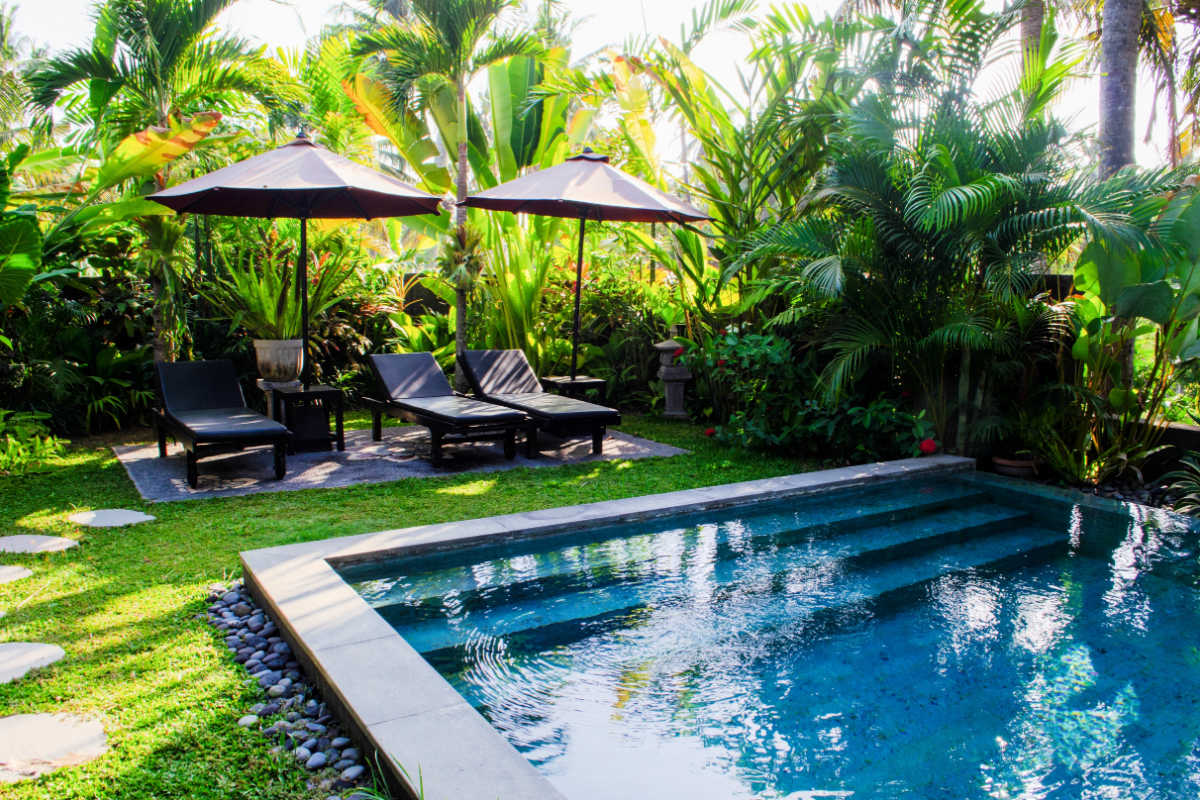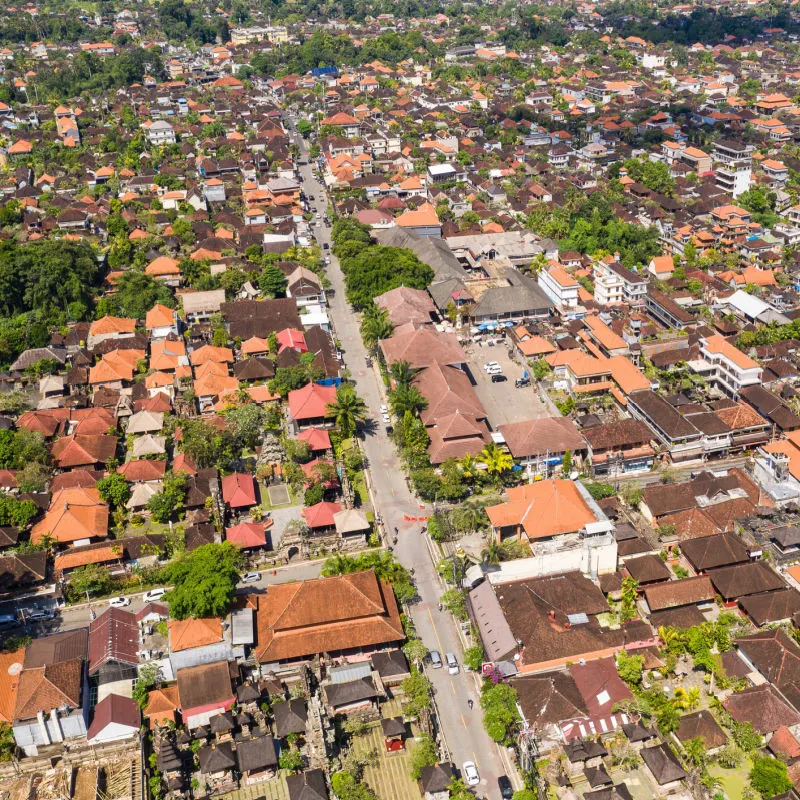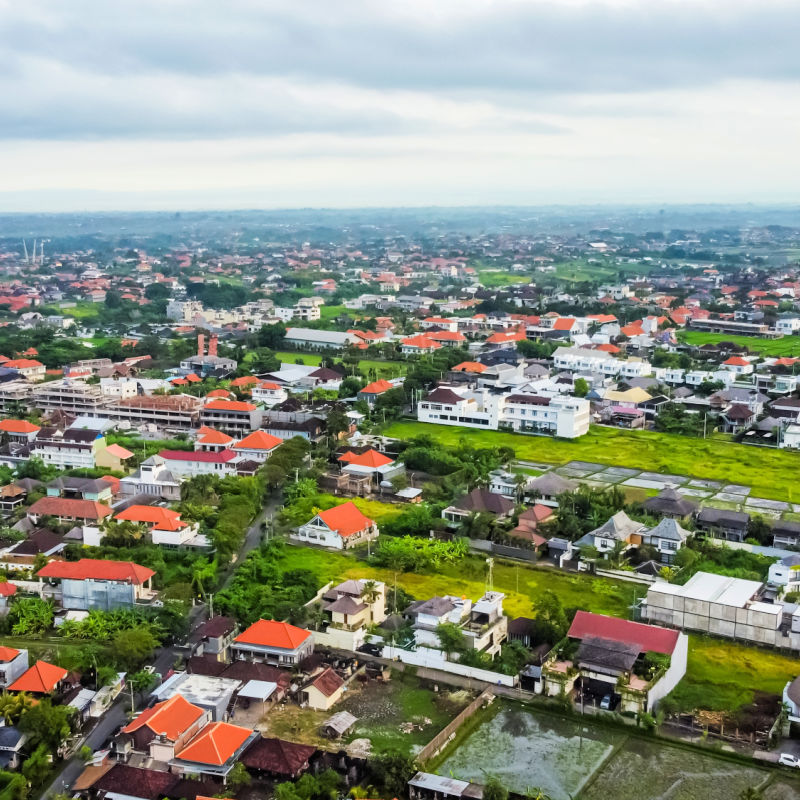The rapid rate of development across Bali has been a huge topic of conversation in 2024.
With a moratorium due to come into effect that will ban the development of new tourist accommodations in Bali’s busiest tourism resorts, local residents are speaking up about the impact development is having on the cost of living, and there are knock-on impacts for tourists, too.

Speaking to local reporters, Ni Made Fitri Apriyani shared her struggle to buy a property in the province where she was born.
She told reporters that buying her dream home in Bali is now “impossible” and something she can only dream of.
With an income of IDR 3-5 million working in housekeeping at a tourist villa, Apriyani says her income barely covers her basic needs and financial commitments to her family and community.
She said, “Not to mention [monthly outgoings] if there are religious ceremonies. It seems like buying land [or a house] is very far away.”
Her dream is to buy land in Batubalan, in Gianyar Regency, close to Ubud. Yet land prices have now risen to IDR 300 million (USD 18,000) for 100 square meters, which is far out of her reach.
At 32 years old Apriyani is coming to terms with the fact that both domestic and international investment in Bali is driving property and land prices far beyond the reach of the average earner.
According to data shared by Realinfo, a Bali property data provider, average property prices in Bali have risen by 7% per year in the last five years, driven by high demand and infrastructure development. However, in in-demand areas such as Canggu, Uluwatu, Ubud, and Seseh, the reality is much higher.
Further data shows that the annual increase in property prices in Denpasar in September 2024 reached 15.1% compared to the same month in the previous year. This means that this increase is much faster than the inflation rate, with a difference of 11.6%.
Gede, another Balinese hospitality worker from Denpasar who wished to remain known only by his first name, told reporters how hopes of even renting a property within a 30-minute drive of his workplace were becoming increasingly challenging. He told reporters how he has simply given up trying to find a place to rent in Denpasar.
Gede explained, “Even if I manage to collect the DP [down payment], it probably won’t be enough [for the installments] per month. Because in Denpasar itself, the average price has reached Rp1 billion for a 100 square meter house.”
Ali, originally from West Java, moved to Ubud 10 years ago and bought his dream property. He revealed to reporters that over the last few years he has been approached in his home by foreigners who have wanted to buy his home, despite the private property not being for sale and appearing very much lived in.

These experiences are not only felt by Balinese communities but by communities around the world who live in or alongside top tourist attracts.
Whether in central Barcelona, Madrid, Venice or Lisbon, the steep inflation caused by demand for tourism rental properties and tourism accommodation is pushing born and bred residents further away from the cities and towns where they want to live.
This is partly why leaders are about to introduce a ban on tourism development in Bali’s fastest-growing resorts.

In Bali’s case, this will eventually have an impact on tourists, too.
As property developers both commercial and private are paying more for land and leases, so too will the costs of the return on investment, meaning tourists will be charged more for their stays so investors can recoup costs.
Does this mean that the days of a budget-friendly vacation in Bali are over? Not necessarily, and there are things tourists can do to help support locally owned businesses that are working to benefit the island in the long term.

Super budget-conscious tourists can stay at locally owned and locally managed homestays, guesthouses, and villas that are often rented out at a far lower cost per night than luxury villas.
As demand for travel in Bali continues to grow hotels and resorts will be doubling down on efforts to get guests through the door, there will be an increasing amount of promotions to get tourists to stay longer and spend more; look out for some great hotel deals coming in 2025.
Those staying in Bali long term, either as digital nomads, on a sabbatical, or as retirees, can rent properties directly from Balinese property owners who, again, are often charging less than big real estate agencies and can often be found adverting their properties on local Facebook groups.
Remove All Ads & Unlock All Articles… Sign up for The Bali Sun Premium

Plan Your Bali Holiday:
Book The Best English Speaking Drivers For Airport Transfers & Tours
Choose From Thousands of Bali Hotels, Resorts, and Hostels with Free Cancellation On Most Properties
Book Cheap Flights To Bali
Don’t Forget Travel Insurance That Covers Medical Expenses In Bali
For the latest Bali News & Debate Join our Facebook Community
SUBSCRIBE TO NEW POSTS
Enter your email address to subscribe to The Bali Sun’s latest breaking news, straight to your inbox.
Discover more from The Bali Sun
Subscribe to get the latest posts sent to your email.

James
Monday 9th of December 2024
"can rent properties directly from Balinese property owners who, again, are often charging less than big real estate agencies and can often be found adverting their properties on local Facebook groups"
This is clearly written by people who have absolutely no clue about what's going on in Bali. Balinese owners are charging the most and kicking out guests when another guests offers them 1 juta more. Also, only freehold land is not in balinese hands anymore once they sold to Javanese, for example. 90% or even more is leasehold, meaning the land is still Balinese owned, meaning the profit in the long run goes towards local families.
Saying it's the same as in European cities is ridiculous.
benito
Wednesday 11th of December 2024
@James, Exactly never ever rent from a greedy balines and pay a full year rent. First .. all smiles and "best friends, after 2-3 months the harassment starts and they do EVERYTHING to make you move.
Sven
Monday 9th of December 2024
Everyone must remember - land does not have a price. It is the landlord/owner who sets a price for it. Bali land is owned by Balinese. If prices are rising, it is because the Balinese land owners are raising them. Prices don't rise by themselves, as they are not living beings.
'Rising land and housing costs' are convenient way to shift blame onto something seemingly out of control, while in reality it's people/owners who raise costs.
Exp
Saturday 7th of December 2024
The issue with extremely high land prices has been the case in parts of Jakarta for years. And strangely enough not caused by foreigners or tourists.
And as foreigners cannot own land they are not to blame for the high land buy-sell prices, although demand for leasing-rent can explain some. Suggest instead to look at what the Javanese businessmen have been doing to Bali with their massive land grabs over the years.